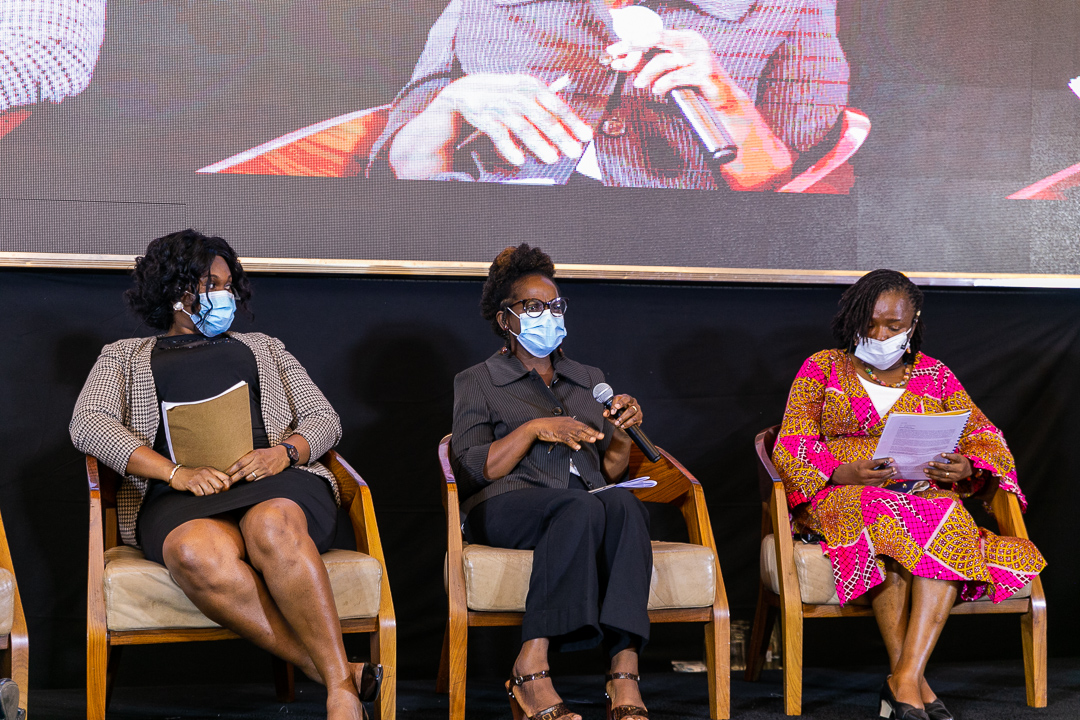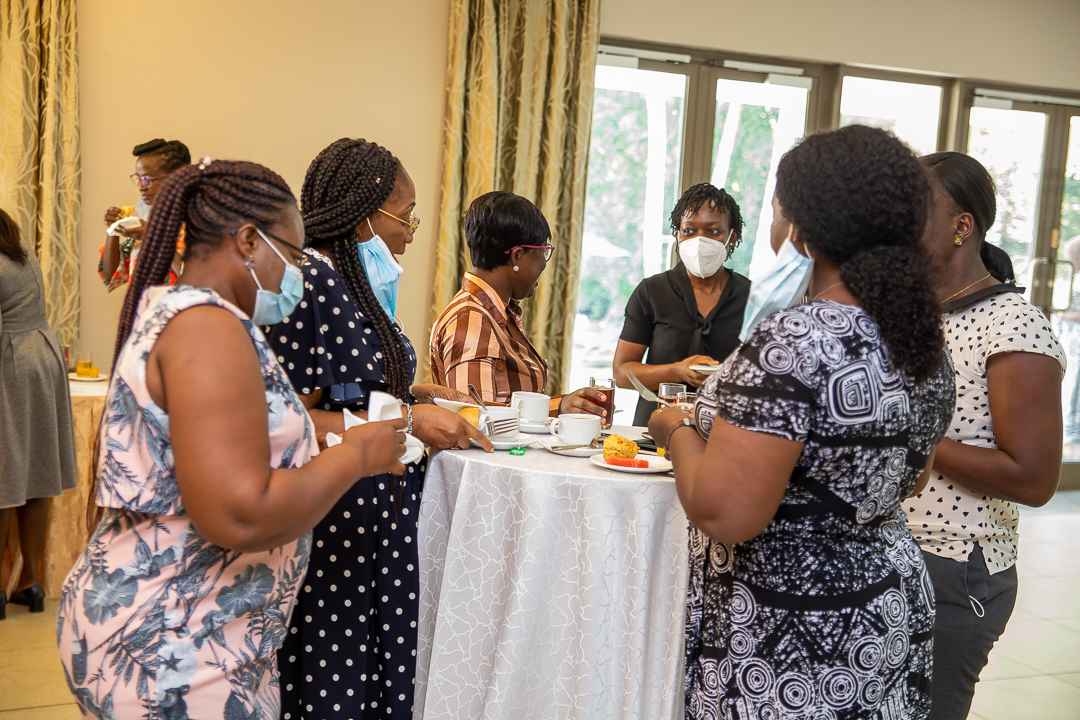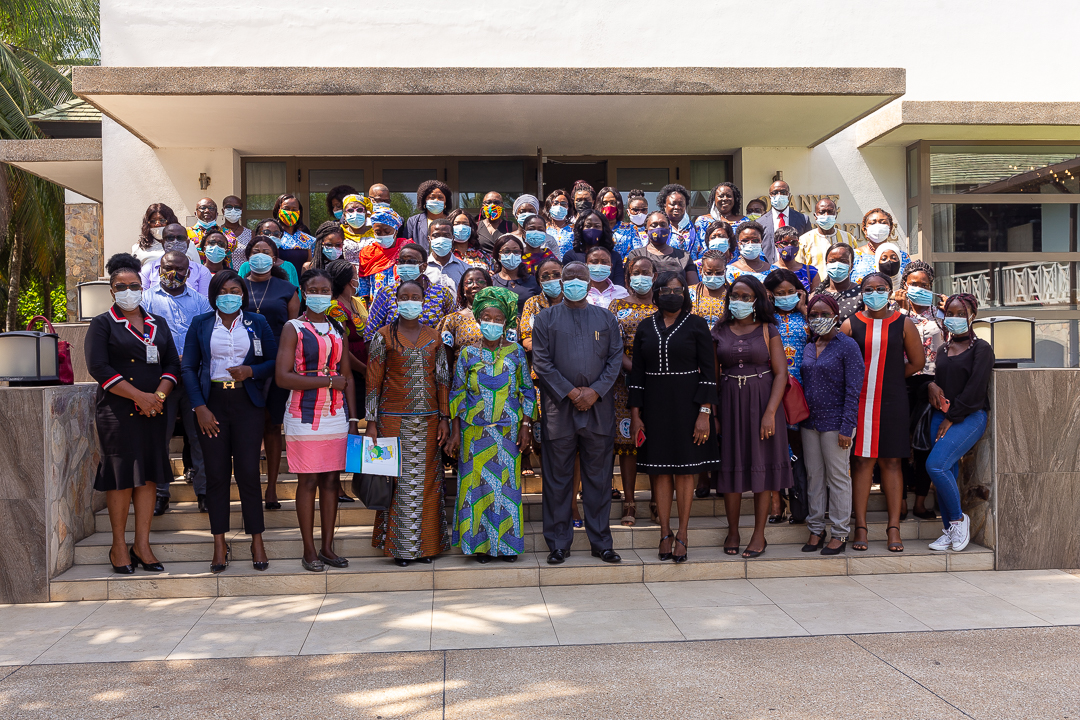
The annual Women in Energy Conference, organized by the Millennium Development Authority as part of MCC’s Ghana Power Compact, brings together professional women in the power sector to share ideas and identify solutions to the barriers women face in the sector.
Through the $308 million Ghana Power Compact, MCC is investing in programs that will create opportunities for women to pursue and achieve their professional aspirations in a male-dominated field. Through policy development and strengthening institutional capacity in power utilities, MCC and ECG are creating a pipeline for women in STEM to enter careers in energy and create more leadership positions for women. With support from MCC, ECG approved a Gender and Social Inclusion Policy in February 2020. This will also likely lead to better daily operations. A recent study (pdf) by McKinsey reveals a link between increased gender diversity in leadership positions and improved company performance.
One of the ways MCC is working to empower women in this area is by creating platforms for women employed in the power sector to voice their concerns, exchange ideas and solutions, and network. To this end, Ghana’s Millennium Development Authority (MiDA) organized the first annual Women in Energy Conference in 2019. This conference, “Women in Energy: Positioning for the Future,” brought together roughly 100 participants from 17 public and private institutions, including power utilities and civil society organizations. Following panel presentations and group working sessions, participants developed a preliminary framework for an action plan for strengthening the women’s associations at their companies.
Women in Energy Conference Provides a Platform for Networking and Mentoring
The second Women in Energy Conference, “Women in Energy: Building Resilience and Growing our Strengths,” was organized in collaboration with USAID’s Engendering Utilities—a program that advances gender equality in male-dominated industries like the power sector. Over 150 women in the power sector, including participants from the MiDA Internship and Mentoring Program, as well as representatives government and non-governmental representatives from Ghana, Liberia, Nigeria, and Senegal attended the conference.Discussions and presentations from experts and covered topics and issues relevant for enhancing women’s professional competencies, strengthening their adaptive strategies, and coping mechanisms to balance work and well-being during the COVID-19 pandemic and beyond.
Participants included the MiDA CEO, Energy Commission Representative, the Electric Company of Ghana’s (ECG) Director of Corporate Affairs (which hosts the utility’s Gender and Social Inclusion Unit), the Second Vice President of the Ghana Employer’s Association, and a representative of the Hon. Minister of Ministry of Gender, Children and Social Protection. All of them emphasized the important role of power companies in attracting more women.
Resilience, Mr. Eson-Benjamin, MiDA CEO said, “allows us to effectively carry on despite adverse circumstances and is very much needed presently, especially in light of the COVID-19 pandemic.” Ing. Kofi Afewu, from ECG, mentioned that the company has two strong female associations, and he stressed that gender inclusion is not about feminism or putting women over men, but about equality.
Participants Highlight Actions for Gender Equality in The Power Sector
Participants also addressed the need to create an enabling work environment that addresses sexual harassment in the workplace, including how to move beyond a policy framework. Many participants stressed the importance of empowering women to report harassment through safe, confidential channels, but added that men also need to be taught the appropriate response to women saying ‘no.’Many participants commented on the importance of networking at the conference, especially for the younger generation of women in the sector. To that end, several attendees commented that it would be ideal for leaders in the field to attend more than just the event’s opening ceremony so that they could contribute to mentoring and networking. Conference participants also teamed up in small groups, based on their organization, to reflect on the progress they have made in the past year and to develop an action plan for the coming year for their women employee associations.
Going forward, participants agreed that they want to put what they learned into practice, adapting and adopting strategies, developing new skills, and strengthening advocacy and networking efforts.
The Women in Energy Conference is just one of many ways that the MCC Ghana Energy Compact is boosting the participation of women in the sector to increase women’s economic empowerment overall and contribute to inclusive and sustainable growth in the country.
Watch this space for a series of interviews with participants at the second Women in Energy Conference, who will discuss their careers, their experience with the conference, and the challenges of working in a male-dominated sector.


Participants at the second Women in Energy Conference in Ghana.

